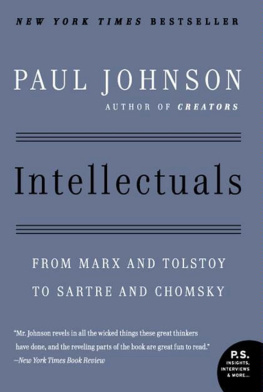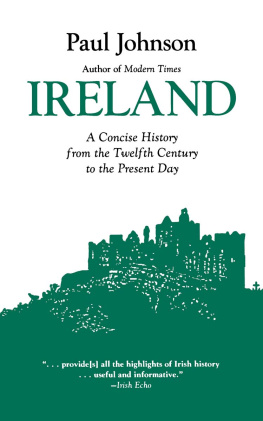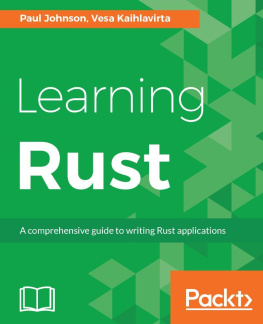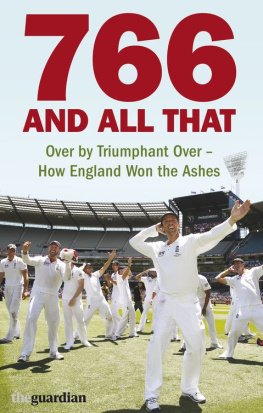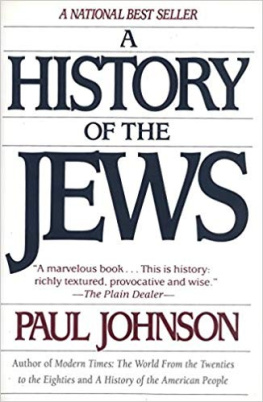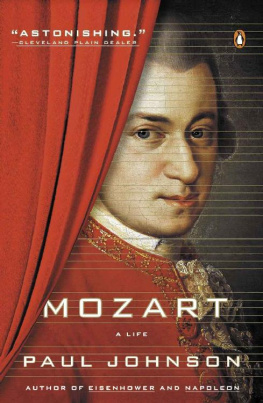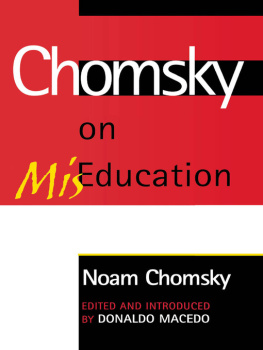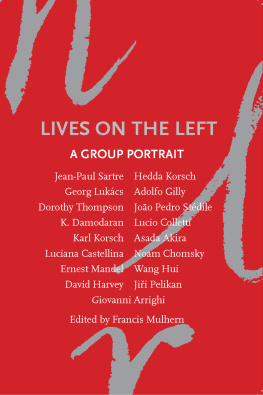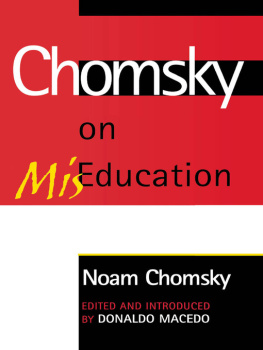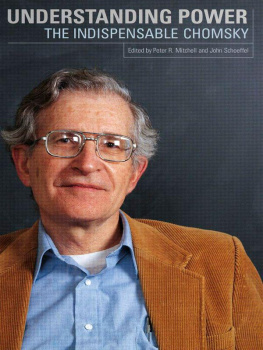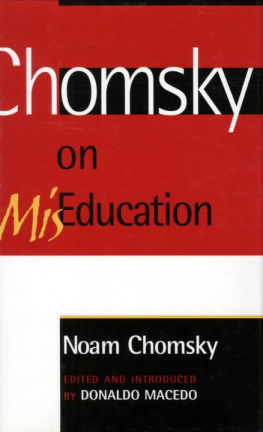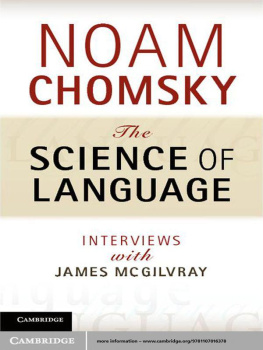To my first grandchild
Samuel Johnson
Contents
T HIS book is an examination of the moral and judgmental credentials of certain leading intellectuals to give advice to humanity on how to conduct its affairs. I have tried to make it factual and dispassionate and wherever possible I have used the works, letters, diaries, memoirs and reported speech of those under scrutiny. For details of their lives I have made use of a number of biographies, the most important of which are as follows. For Rousseau I found the most useful was Lester G. Crocker, Jean-Jacques Rousseau: The Quest, 1712-1758 (New York, 1974) and Jean-Jacques Rousseau: The Prophetic Voice, 1758-1783 (New York, 1973), though I also relished J.H. Huizingas vigorous polemic, The Making of a Saint: the Tragi-Comedy of J.J. Rousseau (London, 1976). For Shelley I have relied most on Richard Holmess superb book, Shelley: The Pursuit (London, 1974), even though I do not agree with him about the illegitimate child. For Marx I turned chiefly to Robert Paynes Marx (London, 1968). Ibsen has a model biographer in Michael Meyer, Henrik Ibsen : i. The Making of a Dramatist, 1828-64 (London, 1967); ii. The Farewell to Poetry, 1864-82 (London, 1971); iii. The Top of a Cold Mountain, 1886-1906 (London, 1971), but I also used Hans Heiberg, Ibsen: Portrait of the Artist (trans., London, 1969) and Bergliot Ibsen, The Three Ibsens (trans., London, 1951). Of the many Tolstoy biographies, I followed most Ernest J. Simmons, Leo Tolstoy (London, 1949), but I made use also of Edward Crankshaws formidably critical account, Tolstoy: The Making of a Novelist (London, 1974). For Emerson I used the works of Joel Porte, notably his Representative Man: Ralph Waldo Emerson in His Time (New York, 1979). For Hemingway I used the two excellent recent biographies, Jeffrey Meyers, Hemingway: A Biography (London, 1985) and Kenneth S. Lynn, Hemingway (London, 1987), as well as the earlier work by Carlos Baker, Hemingway: A Life Story (New York, 1969). For Brecht I used Ronald Hayman, Bertold Brecht: A Biography (London, 1983) and Martin Esslins brilliant study, Bertolt Brecht: A Choice of Evils (London, 1959). For Russell, the chief source for the biographical facts was Ronald W. Clark, The Life of Bertrand Russell (London, 1975). For Sartre I used especially Annie Cohen-Solal: Sartre: A Life (trans., London, 1987) and Claude Francis and Fernande Gontier, Simone de Beauvoir (trans., London, 1987). The indispensable source for Gollancz is Ruth Dudley Edwardss full and fair-minded account, Victor Gollancz: A Biography (London, 1987), and for Lillian Hellman, William Wrights masterly piece of detective work, Lillian Hellman: The Image, the Woman (London, 1987), but I also found useful Diane Johnsons book, The Life of Dashiell Hammett (London, 1984). For the last chapter I made particular use of David Pryce-Jones, Cyril Connolly: Diaries and Memoir (London, 1983), Hilary Mills, Mailer: A Biography (New York, 1982), Kathleen Tynan, The Life of Kenneth Tynan (London, 1987), Robert Katz and Peter Berling, Love is Colder than Death: The Life and Times of Rainer Werner Fassbinder (London, 1987) and Fern Marja Eckman, The Furious Passage of James Baldwin (London, 1968). To all these authors I am grateful. References to some of the many other works consulted will be found in the source notes.
O VER the past two hundred years the influence of intellectuals has grown steadily. Indeed, the rise of the secular intellectual has been a key factor in shaping the modern world. Seen against the long perspective of history it is in many ways a new phenomenon. It is true that in their earlier incarnations as priests, scribes and soothsayers, intellectuals have laid claim to guide society from the very beginning. But as guardians of hieratic cultures, whether primitive or sophisticated, their moral and ideological innovations were limited by the canons of external authority and by the inheritance of tradition. They were not, and could not be, free spirits, adventurers of the mind.
With the decline of clerical power in the eighteenth century, a new kind of mentor emerged to fill the vacuum and capture the ear of society. The secular intellectual might be deist, sceptic or atheist. But he was just as ready as any pontiff or presbyter to tell mankind how to conduct its affairs. He proclaimed, from the start, a special devotion to the interests of humanity and an evangelical duty to advance them by his teaching. He brought to this self-appointed task a far more radical approach than his clerical predecessors. He felt himself bound by no corpus of revealed religion. The collective wisdom of the past, the legacy of tradition, the prescriptive codes of ancestral experience existed to be selectively followed or wholly rejected entirely as his own good sense might decide. For the first time in human history, and with growing confidence and audacity, men arose to assert that they could diagnose the ills of society and cure them with their own unaided intellects: more, that they could devise formulae whereby not merely the structure of society but the fundamental habits of human beings could be transformed for the better. Unlike their sacerdotal predecessors, they were not servants and interpreters of the gods but substitutes. Their hero was Prometheus, who stole the celestial fire and brought it to earth.
One of the most marked characteristics of the new secular intellectuals was the relish with which they subjected religion and its protagonists to critical scrutiny. How far had they benefited or harmed humanity, these great systems of faith? To what extent had these popes and pastors lived up to their precepts, of purity and truthfulness, of charity and benevolence? The verdicts pronounced on both churches and clergy were harsh. Now, after two centuries during which the influence of religion has continued to decline, and secular intellectuals have played an ever-growing role in shaping our attitudes and institutions, it is time to examine their record, both public and personal. In particular, I want to focus on the moral and judgmental credentials of intellectuals to tell mankind how to conduct itself. How did they run their own lives? With what degree of rectitude did they behave to family, friends and associates? Were they just in their sexual and financial dealings? Did they tell, and write, the truth? And how have their own systems stood up to the test of time and praxis?
The inquiry begins with Jean-Jacques Rousseau (171278), who was the first of the modern intellectuals, their archetype and in many ways the most influential of them all. Older men like Voltaire had started the work of demolishing the altars and enthroning reason. But Rousseau was the first to combine all the salient characteristics of the modern Promethean: the assertion of his right to reject the existing order in its entirety; confidence in his capacity to refashion it from the bottom in accordance with principles of his own devising; belief that this could be achieved by the political process; and, not least, recognition of the huge part instinct, intuition and impulse play in human conduct. He believed he had a unique love for humanity and had been endowed with unprecedented gifts and insights to increase its felicity. An astonishing number of people, in his own day and since, have taken him at his own valuation.
In both the long and the short term his influence was enormous. In the generation after his death, it attained the status of a myth. He died a decade before the French Revolution of 1789 but many contemporaries held him responsible for it, and so for the demolition of the ancien rgime in Europe. This view was shared by both Louis XVI and Napoleon. Edmund Burke said of the revolutionary elites: There is a great dispute among their leaders which of them is the best resemblance of RousseauHe is their standard figure of perfection. As Robespierre himself

